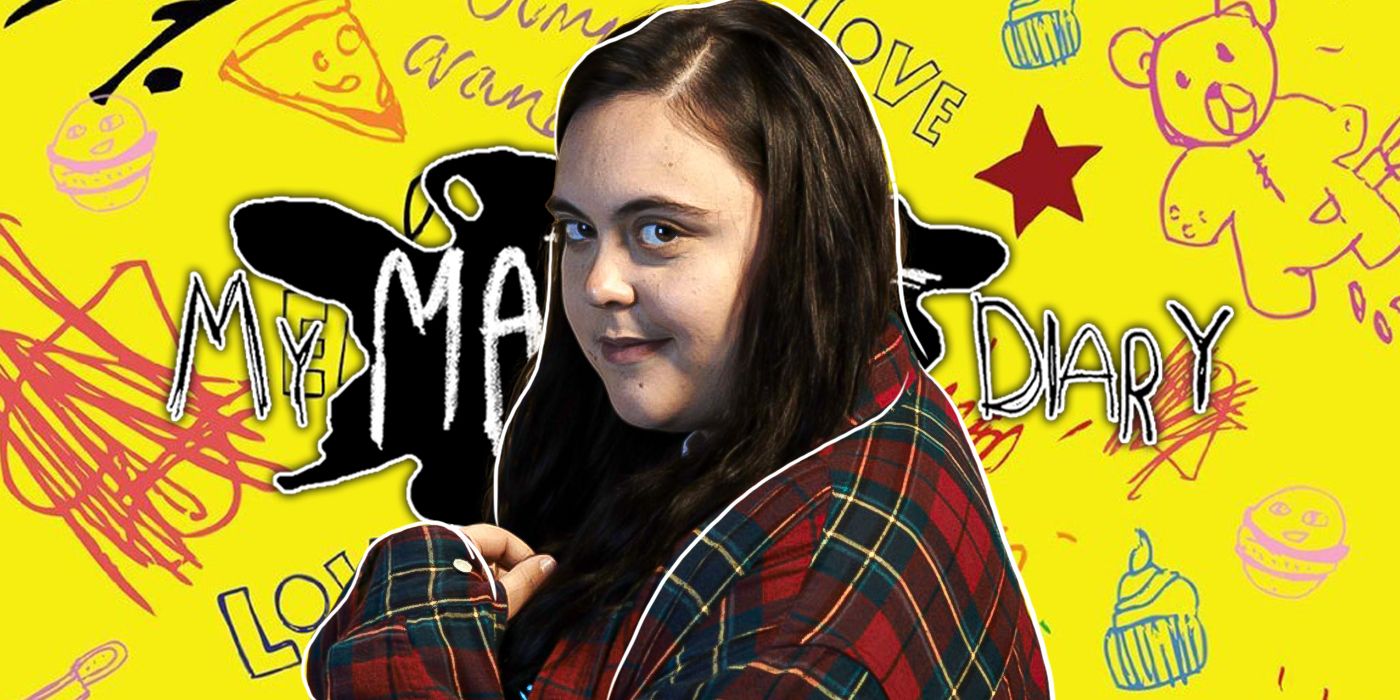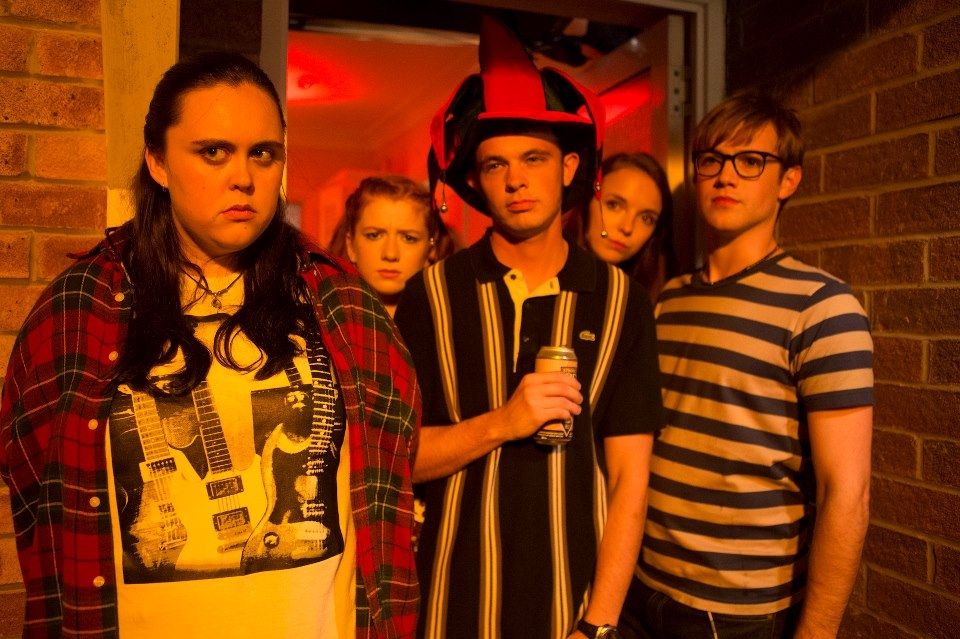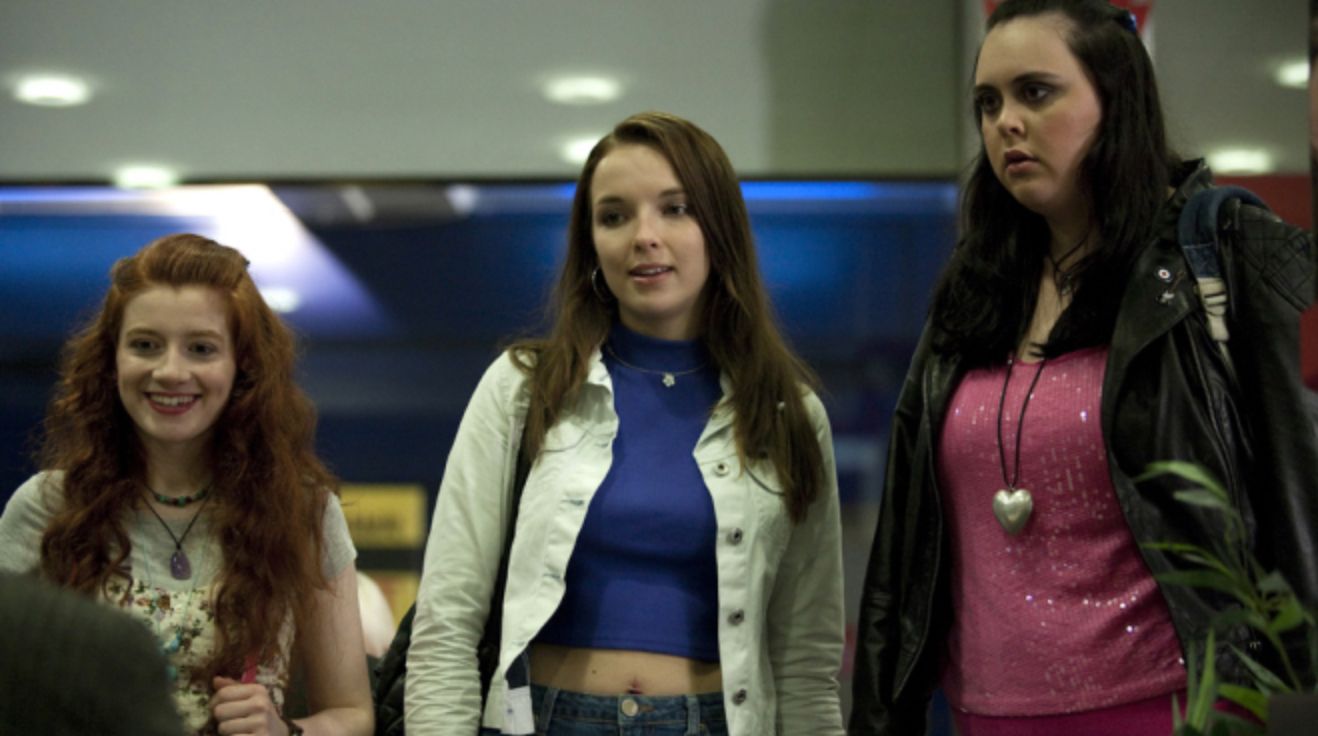From 2013 to 2015, every time we heard the iconic opening of 'One to Another' by The Charlatans, we couldn't help but associate it with E4's My Mad Fat Diary. Riddled with 90s nostalgia, the anguished tones of Blur, Oasis and The Stone Roses - to name but a few - provided the perfect soundtrack to this coming of age teen drama. My Mad Fat Diary follows 16-year-old Rachel 'Rae' Earl and her struggles with her mental health, weight, body image, relationships, friendships, sexuality, and general attempts to fumble through life. Other TV shows and movies that deal with such topics include Girl, Interrupted, 13 Reasons Why, Perks of Being a Wallflower, One Flew Over the Cuckoo's Nest and many more. Out of these examples, some are loved, some are hated - some get it right, and some don't. However, they all focus on the 'fall' into mental illness, the descent into depression and institutionalization. Where these examples document the downward spiral, My Mad Fat Diary defies them by telling us about getting back up.
From its very first episode, we see Rae leave institutionalization and attempt to return to a 'normal' life. Set in Stanford, Lincolnshire, the show feels very small-scale and intimate. The main locations are the therapist's office, the local pub, school, the chippy, and Rae's house - the majority of the places that feel familiar to us who grew up in a small, British town in our youth. The aesthetic and art-style of the show continues this intimacy - visual effects taking on the style of drawings and scribblings, we really are allowed full access to Rae's diary, inner thoughts, and feelings.
As mentioned, the show is all about adjusting to the world, after you already felt 'broken'. We're seeing Rae attempt to control and navigate her mental illness, on top of all the other struggles of adolescence. We see her reconnect with old friends and make new ones, all with their own problems and dramas. We do, ultimately, sympathize with Rae, even if she makes it hard for us much of the time. However, the show's writing takes care to always maintain the fact that we are all only human. Rae's illness is not used as an excuse or 'get out of jail free card' for poor behavior, but as a motivation and reason to improve herself. There are moments of conflict, particularly with her mother - but they are always followed y a genuine, heartfelt apology. Moreover, her mental illness never defines her - as she comes to discover.
There is the overwhelming fear of her time in the institution, and, by proxy, her issues being discovered, and being labeled as a "freak" by her friends. However, she learns that that does not detract from what they love about her: her impeccable music taste, her sardonic sense of humor, her compassionate loyalty towards those she cares about, her ability to down a pint in seconds. It is these things that are the fabric of her personality, the fact she is mentally ill often overshadows this in her mind, but never in the mind of the viewer.
Of course, any show about mental health tackles difficult topics. My Mad Fat Diary deals with issues such as binge-eating, self-harm, and suicidal ideation. However, the show is always careful to maintain the balance of overtly showing the audience and implying it to them - it does a masterful job of making these topics hard-hitting, without depicting them in obscene or potentially triggering ways. The sound design that goes into these particular moments is immaculate. It is not romanticized or overdone. In our eyes, these traumatic moments are triggered by something mildly embarrassing. But the show is always faithful to Rae's perspective, we empathize and understand that Rae finds these moments crippling and world-imploding.
The issues in the series are never melodramatic. The writing really does itself so many favors – never trying too hard to be profound or relatable, Rae swears, she's angry, she's witty – she is a teenager, not just a weak and vague representation of one. Furthermore, from a female perspective, it touches on topics relevant today: plus-sized women struggling with their physical appearance and sexual attractiveness, the objectification of women, platonic friendships between men and women, women being outspoken, women and femininity. These are all issues that women struggled with during the 90s and still ring true in the present day.
Yes, the show has a satisfying ending, but it isn't really an "ending" at all. Rae's life will go on, and she will continue to have peaks and valleys like a regular teen. However, she now has the lessons and the tools to better deal with her emotions and dispositions. That is what mental health is all about: it isn't about eradicating or "curing" emotions, it's about learning how to cope with them in a way that works for us. That's the core message that show leaves us with and introduces us to from the very beginning. Rae still has her issues but can face them, ready to take on the world as an adult.
The fundamental parts of her personality haven't changed, but she has, indeed, matured. She still loves her music, she still has her wit, but she is more collected and aware of others' issues, as well as her own. It's a bittersweet conclusion, but one that maintains the show's realism. Furthermore, Rae can focus on the good times and memories and cleanse herself of the bad. My Mad Fat Diary is truly some of the best of British TV, reminding us that we don't always have to keep calm, but we can always carry on.



